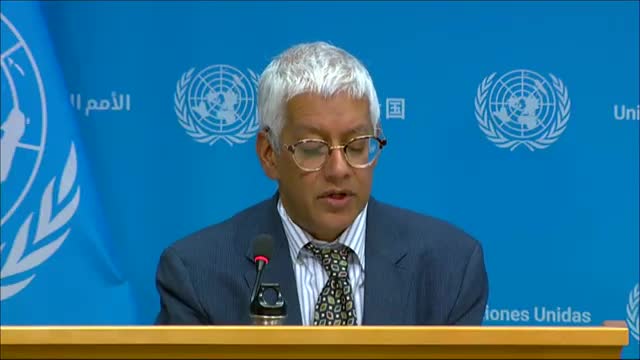U.N. highlights climate priorities: early warning financing and rising action on methane alerts, UNEP says action must accelerate
Get AI-powered insights, summaries, and transcripts
Subscribe
Summary
The U.N. secretary-general urged governments to embed early warning systems in policy and budgets; UNEP reported industry responses to satellite methane alerts rose to 12% from 1% in a year but said reporting must translate into emissions cuts.
At the U.N. briefing the spokesperson summarized the secretary-general's address to the World Meteorological Organization, noting an emphasis on accelerating solutions so communities can adapt to the climate crisis, including the "Early Warning for All" initiative launched in 2022. The secretary-general outlined three urgent areas: embedding early warning systems across policies and budgets, a surge in financing to reach every community, and addressing the root cause of climate disasters: global heating consistent with limiting warming to 1.5 degrees Celsius. He warned an overshoot of 1.5 degrees is "now inevitable" but said temperatures could decline later with the right policies.
Separately, the U.N. Environment Programme released a report the spokesperson summarized, saying government and industry responses to UNEP's more than 3,500 satellite methane alerts climbed from 1% to 12% in the past year. Inger Andersen, UNEP executive director, was quoted as saying that data-driven tools are helping the oil and gas industry report emissions and set mitigation targets, but that reporting "must translate into cuts to emissions." She urged companies to join voluntary partnerships and for government and operators to respond to satellite alerts and act to reduce emissions.
